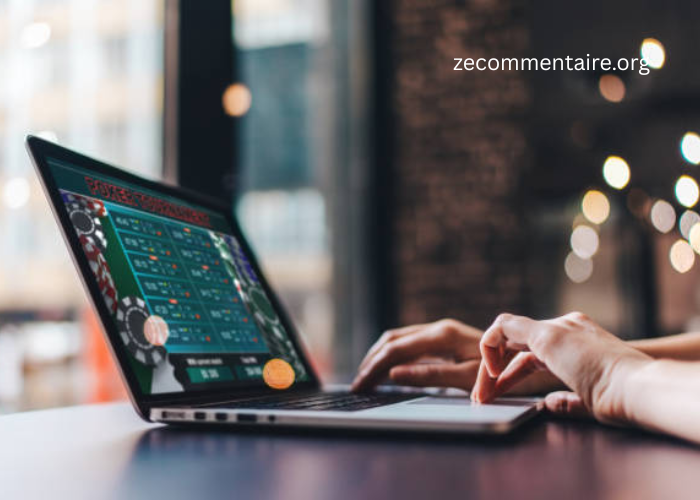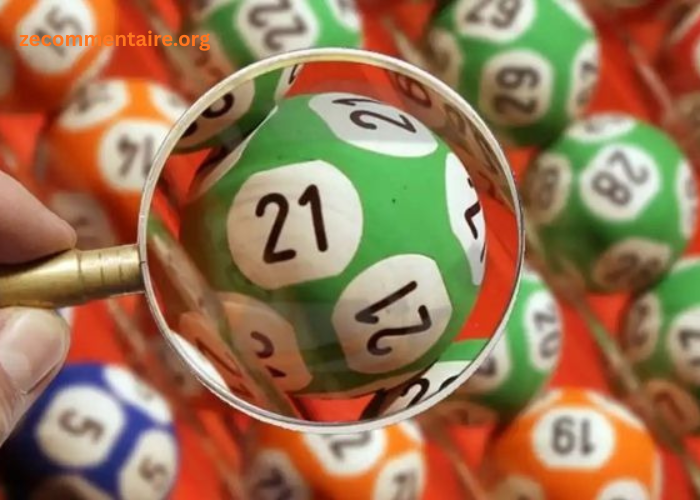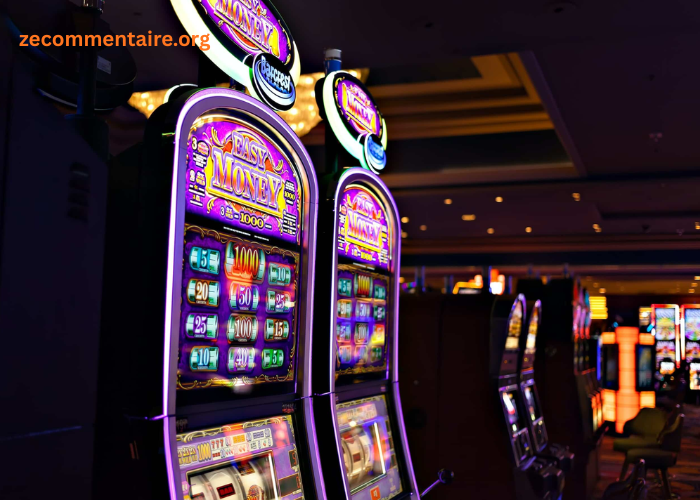The French gaming industry, like many others around the world, has gone through some dramatic changes over the last 10 years or so. These changes have been caused by the combination of advances in technology and a shift in user preferences. One technological change that has had perhaps the biggest impact is the arrival of decentralised platforms. Through the use of blockchain, these allow players to enjoy enhanced ownership, increased levels of transparency, and new ways to engage with games.
As you read on, we’ll be exploring just how decentralised platforms have impacted the gaming scene in France. We’ll be looking at key features, community impacts, and more.
The Evolution of Gaming in France
When you take a look at the history of gaming in France, it’s clear that this is a company that takes it seriously. Developers such as Ubisofts and Don’t Nod Entertainment have been leaders in the industry and allowed the country to shine on the world stage.
In the last few years, gaming in France has evolved. It has moved away from traditional console type games towards the likes of mobiles, cloud-based gaming, and experiences that are powered by blockchain. There’s no denying that similar changes have been seen around the world, but it’s the regulations in France that have made the impact here unique.
Blockchain technology is still maturing and new uses are still being introduced. We are seeing the development of game ownership and also in-game economies. Both developers and gamers in France have realised that blockchain can be used to create experiences that are fairer as well as more engaging. The appeal of blockchain is not just about the innovative approach to gaming, it is also about the way that it can empower players thanks to unmatched levels of transparency.
Key Features of Decentralised Gaming Platforms
As we’ve seen, decentralised platforms are reliant on the use of blockchain technology. This is used to create a gaming environment that offers security, transparency, and a real focus on the user. Issues that are present in traditional gaming are dealt with by blockchain and just some of these issues include:
- Player ownership: With blockchain, players have real ownership of in-game assets such as skins, weapons, and characters. This is because they have been tokenised as NFTs (non-fungible tokens). With true ownership, players then have the right to sell and transfer these assets.
- Enhanced transparency: By using smart contracts, rules are enforced and there is no way that bias can get in the way of this. Developers and publishers have no control when it comes to outcomes and these are reliant on a set number of conditions being met. This is great for games that involve gambling or have a competitive element as it ensures fairness.
- Global access: The traditional world of gaming is limited by certain barriers. These include regional restrictions and limitations imposed by payment processors. Decentralised platforms bypass these restrictions and are accessible around the world,
These features have been welcomed by gamers in France. The country is one of Europe’s leading markets for gaming and so it’s the perfect place for decentralised platforms to develop and thrive.
The Impact of Crypto Gambling on Gaming
Crypto gambling is an area of decentralised gaming that has seen phenomenal growth. Platforms such as stake.com are showing how blockchain is completely transforming the online gambling experience. The fact that it allows for anonymous, fast, and secure gambling sites means that it appeals to tech-savvy users who are looking to move away from the restrictions present at traditional casinos.
When looking at France, the move towards crypto gambling can be seen as aligning with the acceptance of cryptocurrencies as a whole. While the gambling regulations in the country are strict, the decentralised nature of crypto sites means that there’s a workaround so that they can then take steps and attract more French users. Leading platforms offer a huge variety of games and betting options that all tap into the benefits offered by blockchain and this is allowing French players to have trust and confidence in the sites that they visit.
The Appeal of Blockchain-Based Games
Blockchain technology is having a significant impact on games that have long been favourites of gamers in France. They have seen elements being added that make these games more appealing, with a sense of fairness and community. One example can be seen by looking at the Sweet Bonanza slot. Developed by Pragmatic Play, this is one of the most popular slots in France, and around the world. When it is played on decentralised platforms, players have the reassurance that’s offered by provably fair algorithms and this brings a whole new audience to classic games.
Looking closer at Sweet Bonanza, this has long been popular as French players have an appreciation for games that are creative and that offer an immersive experience. Traditionally, the game attracted players thanks to its bright colours and unique mechanics. When this is combined with the transparency that blockchain offers, it’s a game that’s getting even more attention and is becoming more popular than ever.
Blockchain games also appeal to French players because they lead to a sense of empowerment. Players get to own in-game assets as NFTs and they can be part of virtual economies. These economies even have the potential to lead to rewards in the real world. This makes these games a favourite for tech-savvy players who can understand the income potential that some titles offer. Beyond the chance of monetary rewards, there’s also a sense of community as people come together to compete in these games. The players themselves have the ability to influence the in-game economy and this gives them a common interest. This is something that we’ll take a closer look at next.
Building Vibrant Gaming Communities
By integrating crypto into gaming, vibrant communities have been formed. This has seen players and users coming together to collaborate on the design of games, governance, and the economics in the gameplay. That’s what’s so great about decentralised platforms: they allow gamers to get involved with decision-making. This gives a real sense of involvement that traditional games lack.
Looking at France in particular, these community-driven models go down well. When looking at French players over the years, they have a history of supporting innovative projects as well as championing the rights of users in the gaming industry. The way that decentralised platforms work means that these values can be met and this encourages even more players to get involved. Great examples can be seen by looking at exactly what games have to offer. They allow players the opportunity to vote on updates, influence new content, and to have involvement with any economic changes. This democratic approach is something that is hugely welcomed in France.
The communities also lead to an increase in creativity. The nature of decentralised platforms encourages content that has been produced by users and so players feel more involved than they ever have been before. There are even some blockchain platforms that reward players with crypto for the contributions that they make to games. This gives a real incentive for players to continue to contribute.
Challenges in Adoption
There’s no doubting that decentralised platforms bring great benefits to both crypto gambling and gaming as a whole. However, there are also challenges to consider in France and its gaming scene. These include:
- Regulatory hurdles: In France, there are strict regulations that apply to both gambling and cryptocurrency. This potentially puts obstacles in the way when it comes to decentralised platforms that are looking to operate in the country. Compliance with any regulations is a must and this is something that will take real consideration.
- Scalability issues: There are potential issues when it comes to the scalability of blockchain technology. This can have a real impact on the performance of decentralised games. There can also be issues with high transaction fees, although this is more the case with the likes of Ethereum that has high gas fees.
- Adoption barriers: Yes, there’s growing interest in blockchain and there are moves towards mainstream adoption, however, there are still challenges when it comes to a lack of awareness and casual players may lack understanding. There’s a real need to educate players so that they are more likely to move towards embracing the benefits that decentralised platforms have to offer.
If these challenges are going to be overcome, there’s a real need for collaboration between regulators, developers, and the gaming community as a whole.
Opportunities for Growth
While the challenges above need to be addressed, that doesn’t do away with the countless opportunities for decentralised platforms in France. The country is known for having a tech-savvy population. When this is combined with the strong gaming community that exists, there’s the perfect recipe for growth. With millions of active players who are keen to embrace new tech, France has one of the most vibrant gaming markets in the whole of Europe. This environment is ideal as a testing ground for testing decentralised platforms further until they become the go-to choice for the masses.
There are also opportunities to partner with local developers. This would allow games to be tailored more towards the preferences of French players and this would give blockchain platforms a strong foothold in the country. As an example, developers could look at games that have themes that are historically relevant to France. This would allow players to enjoy all of the benefits that decentralised platforms offer while also allowing them to connect with their heritage.
Growth is also likely to increase when issues around scalability and regulations are addressed. This is already happening with the likes of layer 2 solutions. These are already reducing the costs of transactions and improving the overall efficiency of blockchain networks.
Another exciting opportunity can be seen by looking at how blockchain gaming can be integrated with esports. Esports are gaining real traction in France and blockchain could improve this by offering provably fair gameplay.
The Future of Decentralised Gaming in France
The role of decentralised platforms in the French gaming scene is only set to grow in recent years, and beyond. As blockchain technology becomes more accessible and user-friendly, it will be embraced even further. Developments in crypto gambling and blockchain-based games will continue to lead us all to new gaming experiences, with levels of fairness and security that just can’t be matched elsewhere.
As blockchain gaming continues to mature, there’s the chance for investors and other talents to be attracted to it. This would take innovation to the next level. Developers in France are known not only for their creativity, but also their technical expertise. This means that they are perfectly positioned to take decentralised platforms forward and to bring in a wider audience.
Final Thoughts
Decentralised platforms are having a massively significant impact on the French gaming industry. The introduction of models that include transparency, ownership, and new monetisation options are all going towards an experience that is unlike any other. Blockchain is set to develop as time goes on and, as it does, the influence that it has on gaming is only set to grow. This will provide some really exciting opportunities for both developers and gamers alike.
Yes, there are challenges that need to be addressed, but there’s no doubt that decentralised platforms offer a real opportunity to fully transform the gaming industry in France. The bringing together of blockchain and gaming is far from just being a fad or the latest trend. Instead, it’s something that will influence the future of the industry for many years to come.
The impact on online casinos is equally as significant, with blockchain doing away with concerns that players had with traditional sites. Fairness is provable, play can be anonymous, and transactions are faster and safer than ever before. These factors all show why French players are beginning to opt for decentralised gambling platforms over the sites of old.





